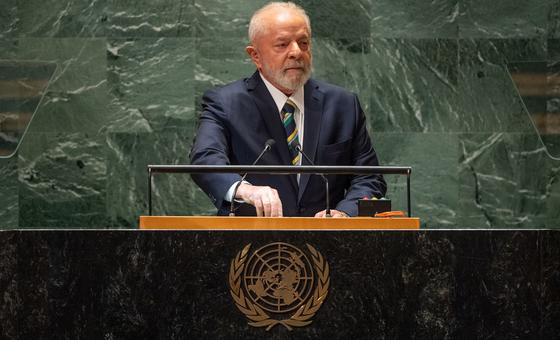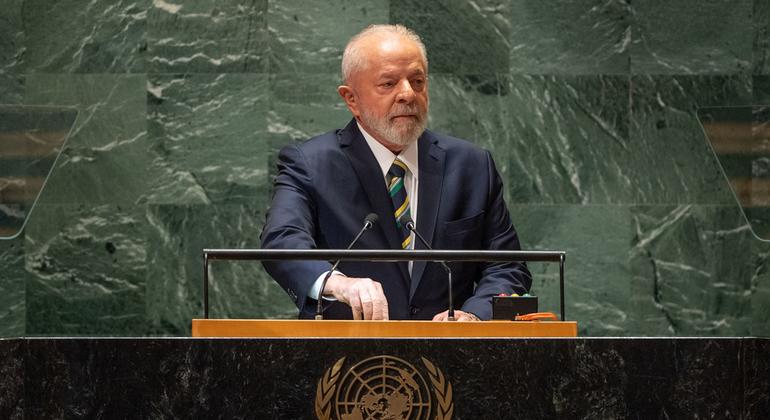
Global inequalities
The world is becoming increasingly unequal, according to Mr. Silva. Immersed in a world of intersecting crises, including COVID-19, security, racism, intolerance, and stable access to food and clean water, more must be done to ensure that inequalities do not continue to grow.
“The ten richest billionaires have more wealth than the poorest 40 per cent of humanity,” said Mr. Silva.
“The destiny of every child born on this planet seems to be decided while they’re still in their mother’s womb. The part of the world where their parents live, and the social class their family belongs to, will determine whether or not that child will have opportunities throughout life,” he added.
Unequal access to safe and secure food and water, healthcare, education, and employment opportunities all exacerbate inequalities and have amplified by growing geopolitical tensions, according to Mr. Silva.
Climate chaos on our doorsteps
Brazil has quickly become a leader among the Global South for coordinating climate diplomacy. Mr. Silva emphasized the need for urgent, comprehensive international cooperation to avoid a worsening climate crisis.
“It knocks on our door, destroys our homes, our cities, our countries, kills, and imposes suffering and losses on our brothers,” said Mr. Silva. “It is the vulnerable populations in the Global South who are most affected by the loss and damage caused by climate change.”
Brazil hosted the Amazon Cooperation Treaty Organization (ACTO) summit in August, where eight South American nations met to discuss rainforest protections and the climate crisis.
Additionally, Brazil has decreased deforestation of the Amazon by 48 per cent and has become a leader in the transition to renewable energy, with 87 per cent of Brazil’s electric power coming from renewable sources.
“In Brazil, we have already proven once, and will prove again, that a socially fair and environmentally sustainable model is possible. We are at the forefront of energy transition, and our matrix is already one of the cleanest in the world.”
Mr. Silva plans to meet with US President Joe Biden at the UNGA on Wednesday to address the climate crisis.
Geopolitical tensions
As tensions grow between China and the United States, and as war continues to rage in Ukraine, Mr. Silva said his Government has avoided explicit support for Beijing, Moscow, or Washington. Brazil has refused militarily backing Ukraine, but is joined by a number of nations condemning Russia’s attack and calling for peace talks.
“Armed conflicts are an offense to human rationality. We know the horrors and suffering produced by all wars. Promoting a culture of peace is a duty for all of us,” he said.
Brazil has also been critical of the UN Security Council’s ability to effectively prevent conflict from spreading across the globe.
“The Security Council has been progressively losing its credibility. This frailty is the specific result of actions from its permanent members who wage unauthorized wars or regime change. Its paralysis is the most eloquent proof of the urgent need to reform it, which will bring it greater representation and efficacy.”
🇧🇷 Brazil – President Addresses United Nations General Debate, 78th Session | #UNGA



